Abstract
Multiple chemical sensitivity is a controversial diagnosis. Rigorous, controlled, laboratory-based research can reduce this controversy and lead to potential clinical confirmatory tests. The literature on human caffeine discrimination provides a rigorous methodology that can address reports that patients who suffer multiple chemical sensitivity (MCS) are sensitive to usually well-tolerated chemical doses; the studies require patients to discriminate caffeine from placebo under double-blind conditions. Several issues relevant to the conduct of caffeine discrimination studies using MCS patients as subjects are addressed; these issues include study design, determination of safe and tolerable training doses, and discrimination training. Such research will benefit patients and clinicians dealing with a diagnosis of MCS.
Full text
PDF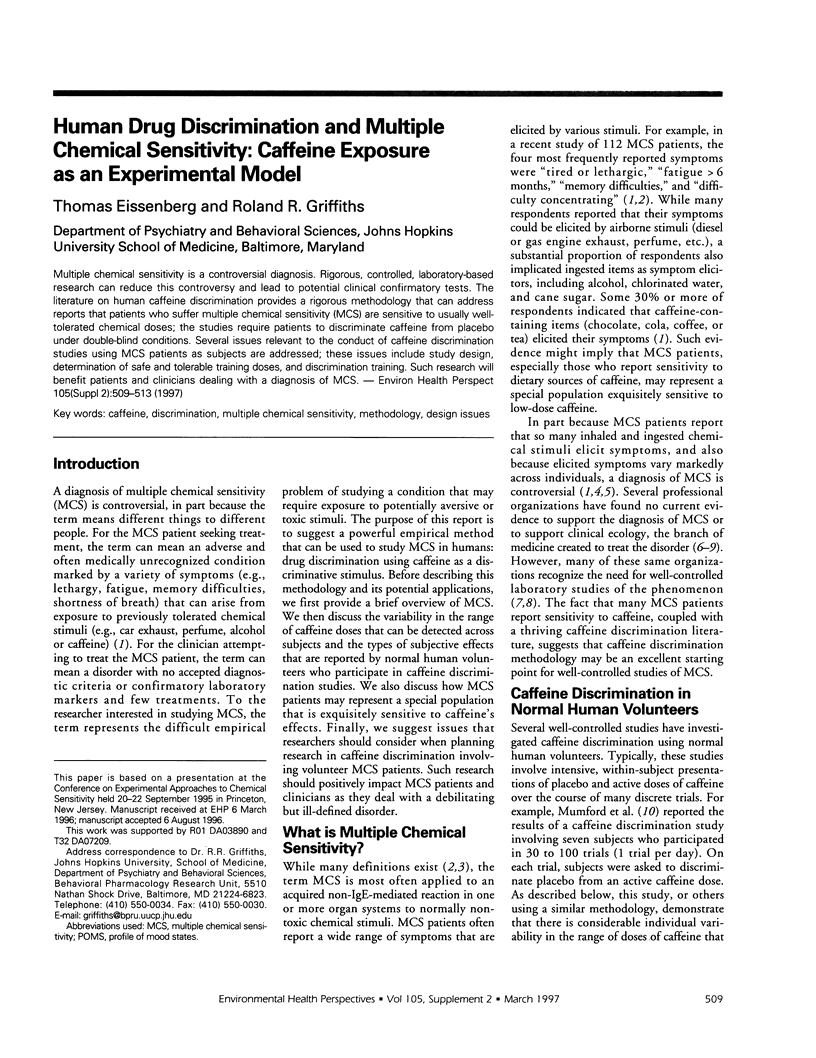
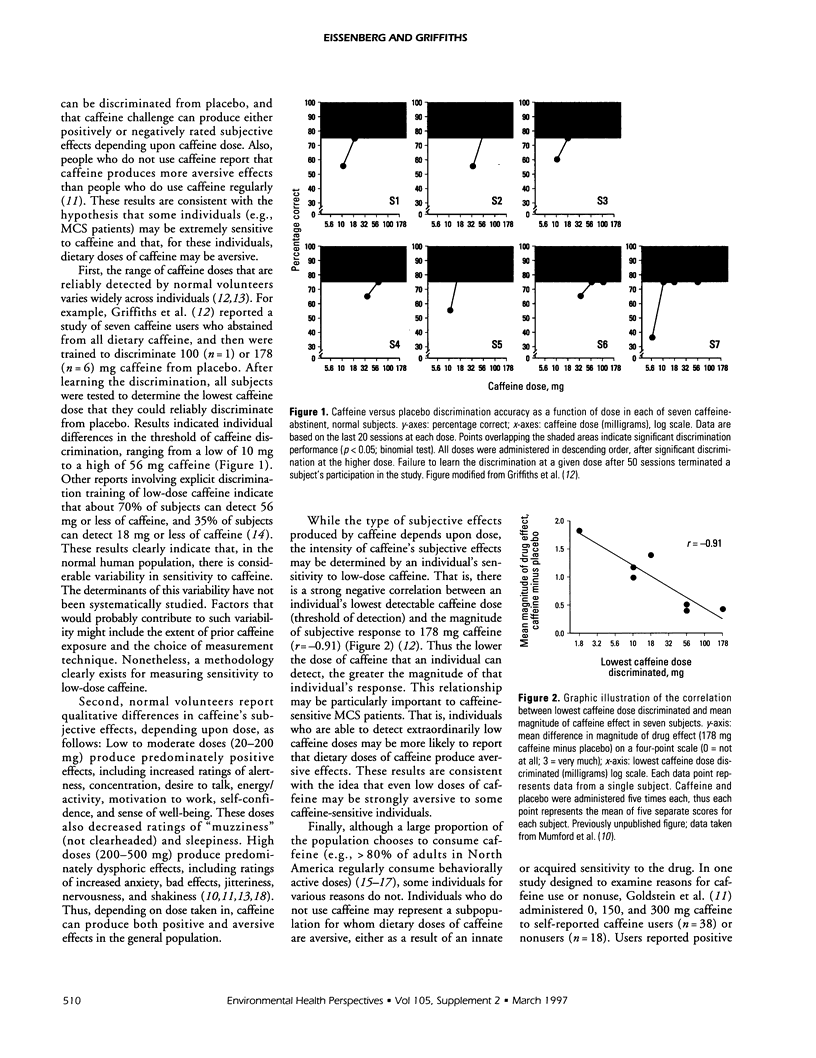
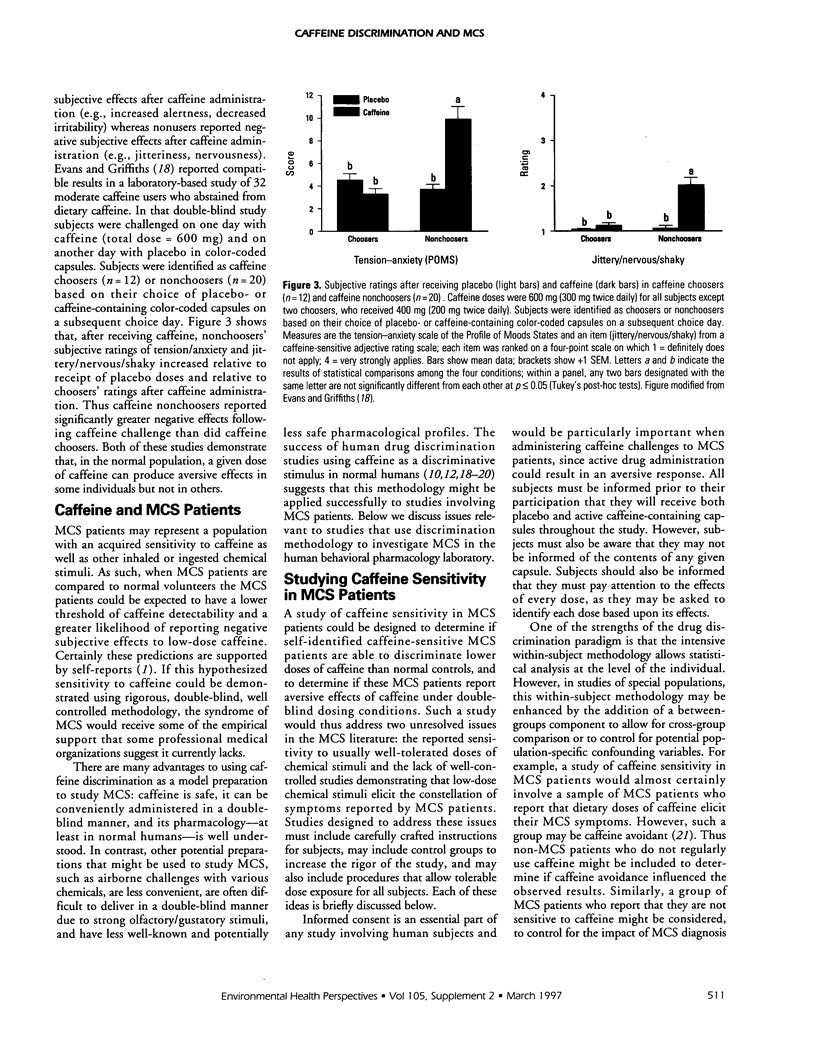
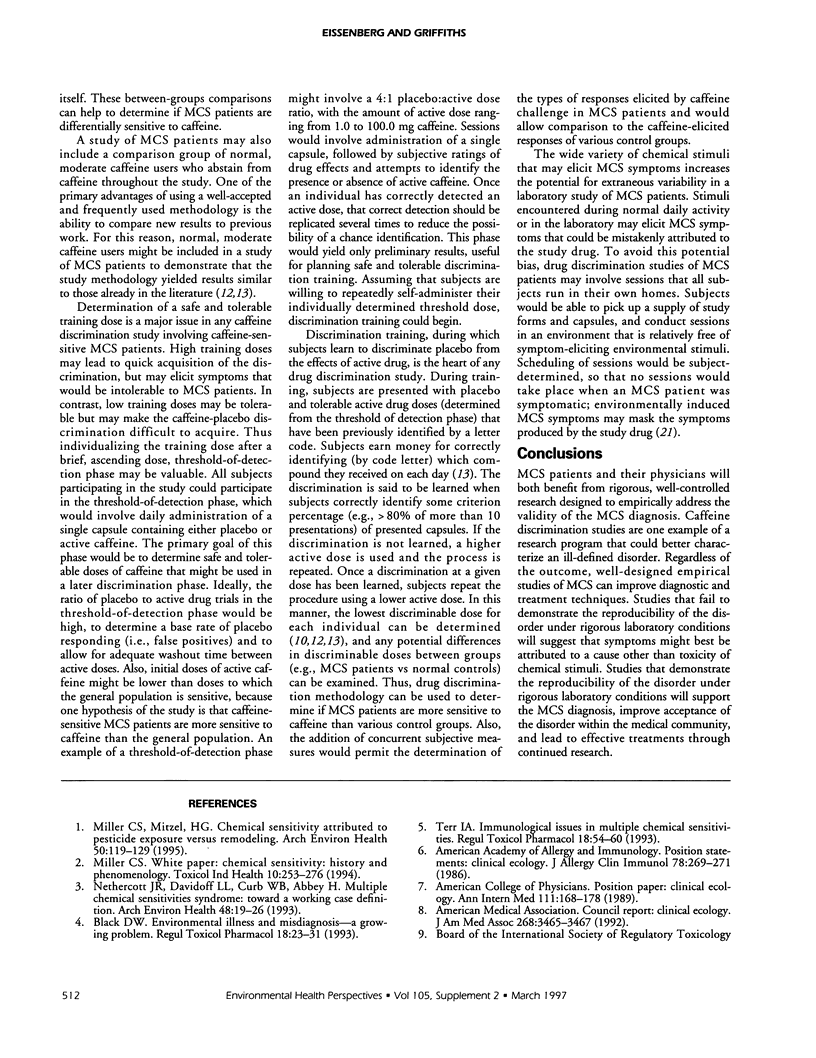
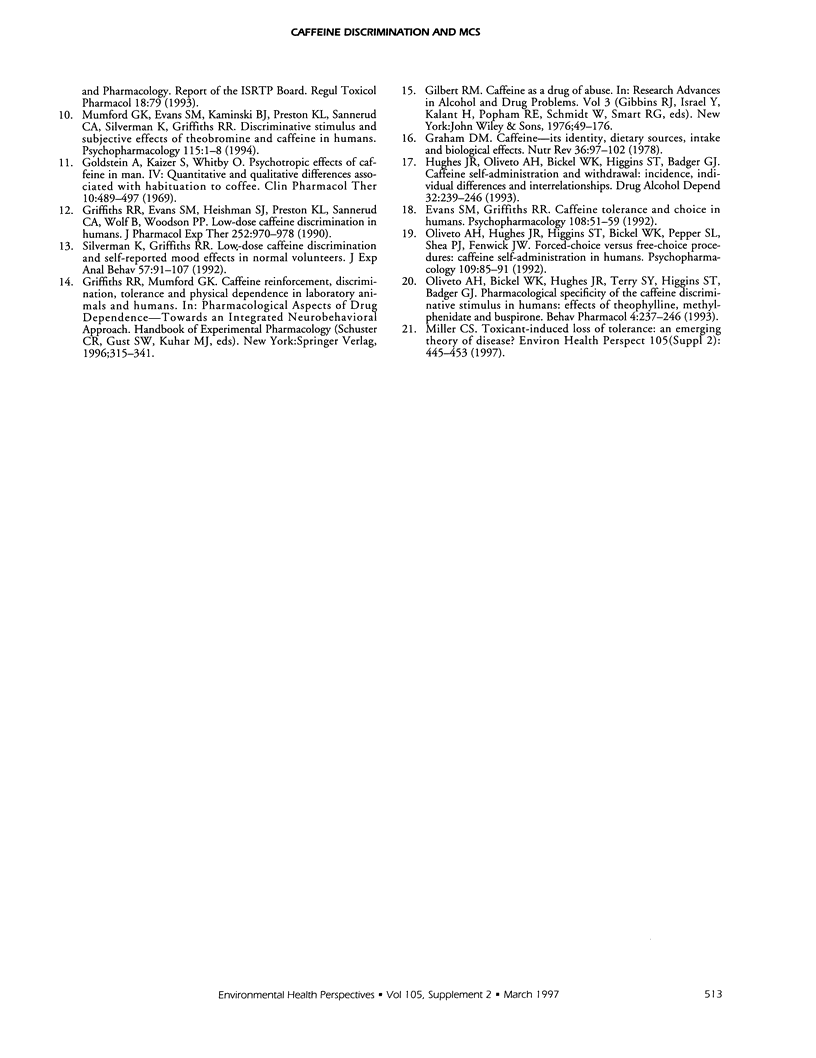
Selected References
These references are in PubMed. This may not be the complete list of references from this article.
- Black D. W. Environmental illness and misdiagnosis--a growing problem. Regul Toxicol Pharmacol. 1993 Aug;18(1):23–31. doi: 10.1006/rtph.1993.1041. [DOI] [PubMed] [Google Scholar]
- Evans S. M., Griffiths R. R. Caffeine tolerance and choice in humans. Psychopharmacology (Berl) 1992;108(1-2):51–59. doi: 10.1007/BF02245285. [DOI] [PubMed] [Google Scholar]
- Goldstein A., Kaizer S., Whitby O. Psychotropic effects of caffeine in man. IV. Quantitative and qualitative differences associated with habituation to coffee. Clin Pharmacol Ther. 1969 Jul-Aug;10(4):489–497. doi: 10.1002/cpt1969104489. [DOI] [PubMed] [Google Scholar]
- Graham D. M. Caffeine--its identity, dietary sources, intake and biological effects. Nutr Rev. 1978 Apr;36(4):97–102. doi: 10.1111/j.1753-4887.1978.tb03717.x. [DOI] [PubMed] [Google Scholar]
- Griffiths R. R., Evans S. M., Heishman S. J., Preston K. L., Sannerud C. A., Wolf B., Woodson P. P. Low-dose caffeine discrimination in humans. J Pharmacol Exp Ther. 1990 Mar;252(3):970–978. [PubMed] [Google Scholar]
- Hughes J. R., Oliveto A. H., Bickel W. K., Higgins S. T., Badger G. J. Caffeine self-administration and withdrawal: incidence, individual differences and interrelationships. Drug Alcohol Depend. 1993 May;32(3):239–246. doi: 10.1016/0376-8716(93)90088-8. [DOI] [PubMed] [Google Scholar]
- Miller C. S., Mitzel H. C. Chemical sensitivity attributed to pesticide exposure versus remodeling. Arch Environ Health. 1995 Mar-Apr;50(2):119–129. doi: 10.1080/00039896.1995.9940889. [DOI] [PubMed] [Google Scholar]
- Miller C. S. Toxicant-induced loss of tolerance--an emerging theory of disease? Environ Health Perspect. 1997 Mar;105 (Suppl 2):445–453. doi: 10.1289/ehp.97105s2445. [DOI] [PMC free article] [PubMed] [Google Scholar]
- Miller C. S. White paper: Chemical sensitivity: history and phenomenology. Toxicol Ind Health. 1994 Jul-Oct;10(4-5):253–276. [PubMed] [Google Scholar]
- Mumford G. K., Evans S. M., Kaminski B. J., Preston K. L., Sannerud C. A., Silverman K., Griffiths R. R. Discriminative stimulus and subjective effects of theobromine and caffeine in humans. Psychopharmacology (Berl) 1994 Jun;115(1-2):1–8. doi: 10.1007/BF02244744. [DOI] [PubMed] [Google Scholar]
- Nethercott J. R., Davidoff L. L., Curbow B., Abbey H. Multiple chemical sensitivities syndrome: toward a working case definition. Arch Environ Health. 1993 Jan-Feb;48(1):19–26. doi: 10.1080/00039896.1993.9938389. [DOI] [PubMed] [Google Scholar]
- Oliveto A. H., Hughes J. R., Higgins S. T., Bickel W. K., Pepper S. L., Shea P. J., Fenwick J. W. Forced-choice versus free-choice procedures: caffeine self-administration in humans. Psychopharmacology (Berl) 1992;109(1-2):85–91. doi: 10.1007/BF02245484. [DOI] [PubMed] [Google Scholar]
- Oliveto A.H., Bickel W.K., Hughes J.R., Terry S.Y., Higgins S.T., Badger G.J. Pharmacological specificity of the caffeine discriminative stimulus in humans: effects of theophylline, methylphenidate and buspirone. Behav Pharmacol. 1993 Jun;4(3):237–246. [PubMed] [Google Scholar]
- Silverman K., Griffiths R. R. Low-dose caffeine discrimination and self-reported mood effects in normal volunteers. J Exp Anal Behav. 1992 Jan;57(1):91–107. doi: 10.1901/jeab.1992.57-91. [DOI] [PMC free article] [PubMed] [Google Scholar]
- Terr A. I. Immunological issues in "multiple chemical sensitivities". Regul Toxicol Pharmacol. 1993 Aug;18(1):54–60. doi: 10.1006/rtph.1993.1044. [DOI] [PubMed] [Google Scholar]


